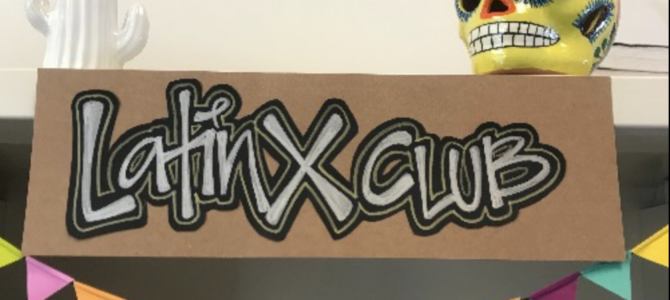A new study released Tuesday by the Pew Research Center found that only one-fourth of people living in the United States who trace their roots to Latin America and Spain have heard of the term “Latinx,” an alternative word for Hispanic and Latino. Of that minority, only 3 percent use the term, a percentage “similar across all major demographic subgroups.”
Researchers found some people view “Latinx” as a “gender- and LGBTQ-inclusive term, reflecting a broader movement within the U.S. around gender identity.” On the other hand, the term has also “generated debate about its appropriateness” because some people believe it “ignores the Spanish language and its gendered form.”
If Hispanics aren’t using the term, then who is? Researchers found that in recent years Latinx has become popular on social media with, “celebrities, politicians and grassroots organizations.” Additionally, “academic centers at community colleges, public universities and Ivy League universities” are rebranding Latino programs with new “Latinx-focused” names. The contrast between those who do and do not use the term have prompted people to question whether or not “Latinx” is elitist.
Among the politicians imposing the term “Latinx” on Hispanics is presumptive Democrat presidential nominee, Joe Biden.
Joe Biden is imposing the ridiculous "Latinx" label on Hispanics. It’s a term officially rejected by the Spanish Royal Academy and 98% of Latinos.
Elitist white progressives may think they know better, but we won't let them neuter our language!#LatinosForTrump pic.twitter.com/41WMusnM60
— Equipo Trump – Text VAMOS to 88022 (@EquipoTrump) May 27, 2020
The graph below, provided by the Pew Research Center, shows that based on Google searches, the term Latinx has been gaining popularity since 2016. However, its search level remains significantly lower than Latina, Latino, and Hispanic.

Pew found that of Hispanics in the United States, young people are “among the most likely to have heard of the term,” with 42 percent of 18 to 29-year-old Hispanics having heard of it. It is a stark contrast from Hispanics 65 or older, with only 7 percent having heard of it.
The demographic with the highest use of the word are Hispanic women ages 18 to 29, with 14 percent who say they use it. The percentage of Hispanic women is much bigger than Hispanic men in the same age group, with only 1 percent who say they use it. Moreover, only “2 percent or fewer” of all Hispanics ages 30 and older say that they have used the term.
Hispanics with college experience are more likely to be aware of Latinx than those without college experience. About “four-in-ten Hispanic college graduates (38%) say they have heard of ‘Latinx,’ as do 31% of those with some college experience.” Of college graduates or those with some college experience, only 5 percent say they have used the word Latinx. Only “14% of those with a high school diploma or less are aware of the term” and of those without a high school diploma or less, only 2 percent have used it.
U.S.-born Hispanics are more likely than foreign-born Hispanics to have heard of the term, “32% vs. 16%.” Additionally, Hispanics who are “predominantly English speakers or bilingual” are more likely than those who speak mostly Spanish to have heard of the term, “29% for both vs. 7%.”
Political party lines also show contrast in awareness of the word. “Hispanics who identify with or lean toward the Democratic Party are more likely to have heard of Latinx than those who identify with or lean toward the Republican Party (29% vs. 16%).”
Even though more Hispanics who are Democrats, as well as Democratic-leaning independents, say they have heard of “Latinx,” only 4 percent say they have actually used the word. Even lower is 1 percent of Republicans and Republican-leaners who reported using the word.









